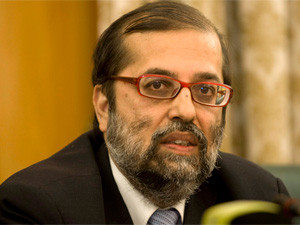
Leaders of the Association of Community Television - SA (ACT-SA), MultiChoice and the National Association of Manufacturers in Electronic Components (NAMEC) have disputed the necessity of set-top boxes (STBs) in SA's delayed migration to digital terrestrial television (DTT).
In an open letter to minister of communications Yunus Carrim published in the City Press and Sunday Times today, the three organisations outline "serious reservations" about STB's, saying they have been "universally rejected internationally" as they make migration more expensive.
The organisations argue that the costs of buying STBs "greatly outweigh any supposed benefits".
According to the letter, compulsory STB's "advance certain narrow commercial interests - rather than being in the interests of our nation.
The full letter is as follows:
Dear Mr Carrim
For some time now, we have been involved in discussions with you and other stakeholders around your policy which seeks to regulate the migration of TV services from the current analogue broadcast system to digital.
Digital migration marks an exciting new phase in broadcasting (with great opportunities) and will have far reaching consequences for consumers, government and broadcasters. The major impact will be on South African consumers.
Nearly 8 million analogue TV households will need a set-top box (STB) to allow older TV sets to receive the new digital signals.
Your position is that set-top boxes must include technology which is unnecessary and expensive, specifically encryption technology which is used to control access to TV services.
We have serious reservations about this - it has been almost universally rejected internationally, it will make the migration process more expensive and it is opposed by most South African broadcasters
Including this technology in every free-to-air STB will:
- Harm consumers by raising the cost of digital migration and binding consumers to an STB forever;
- Harm free-to-air broadcasting by increasing the cost of free-to-air television for broadcasters
- Disadvantage emerging black manufacturers;
- Increase the costs of migration for government, which has already committed itself to subsidising STB's for the poorest 5 million TV households. Unlike in other countries, this need to subsidise will continue forever because free TV signals will be encrypted here; and
- Make the migration process complex and result in further delays
We dispute this aspect of your policy and believe the costs greatly outweigh any supposed benefits. Your current proposals advance certain narrow commercial interests - rather than being in the interests of our nation.
We appeal to you to allow free, unencrypted digital terrestrial television to launch without any further delay.
Yours Sincerely,
Collin Mackenzie (Secretary general of the ACT-SA)
Nolo Letele (Executive chairman of MultiChoice)
Keith Thabo (Chairman of NAMEC)
Share